
Professor of Communication Science @UMD | persuasion, health communication, misinformation, AI, media effects
Reposted by Melanie C. Green, Xiaoli Nan

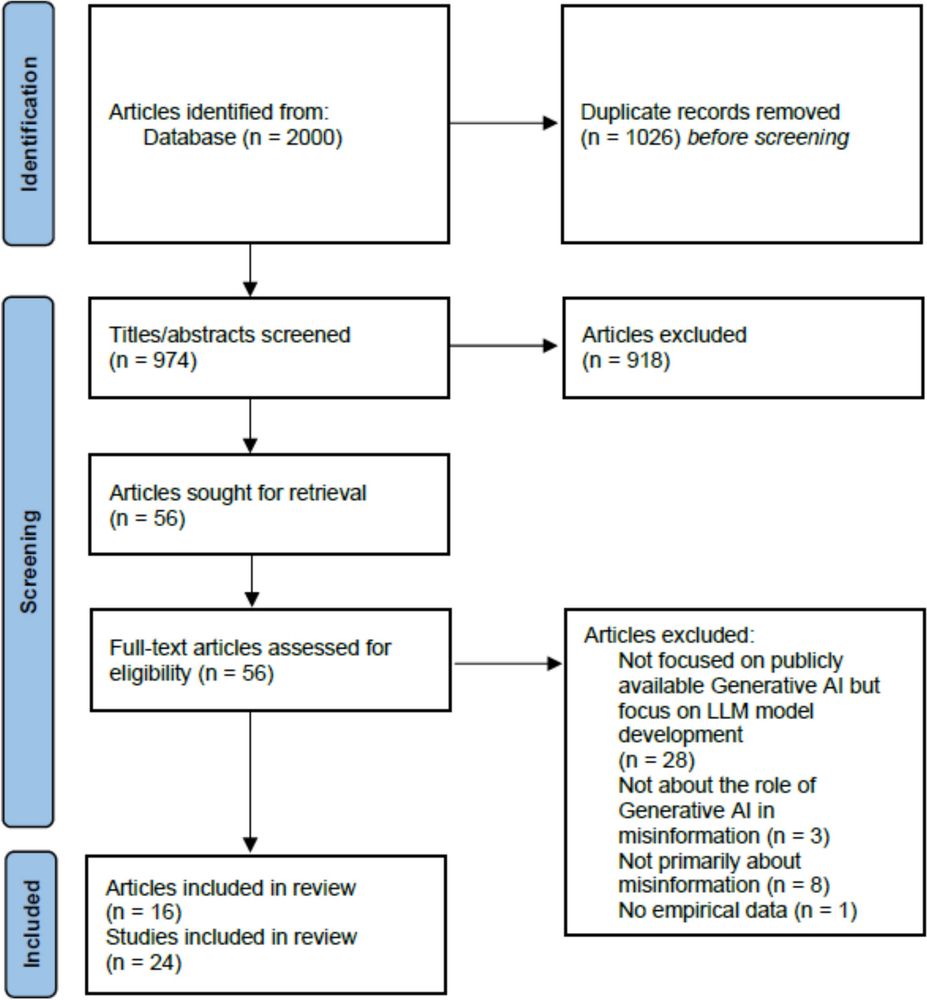
Reposted by Xiaoli Nan

@who.int: “no conclusive scientific evidence confirming a possible link.”
"Public health leaders and organizations around the world have been sounding off..."
U.S. become Dark Age Nation
Reposted by Janet K. Swim, William C. Clark, Xiaoli Nan , and 1 more Janet K. Swim, William C. Clark, Xiaoli Nan, Meru Sheel
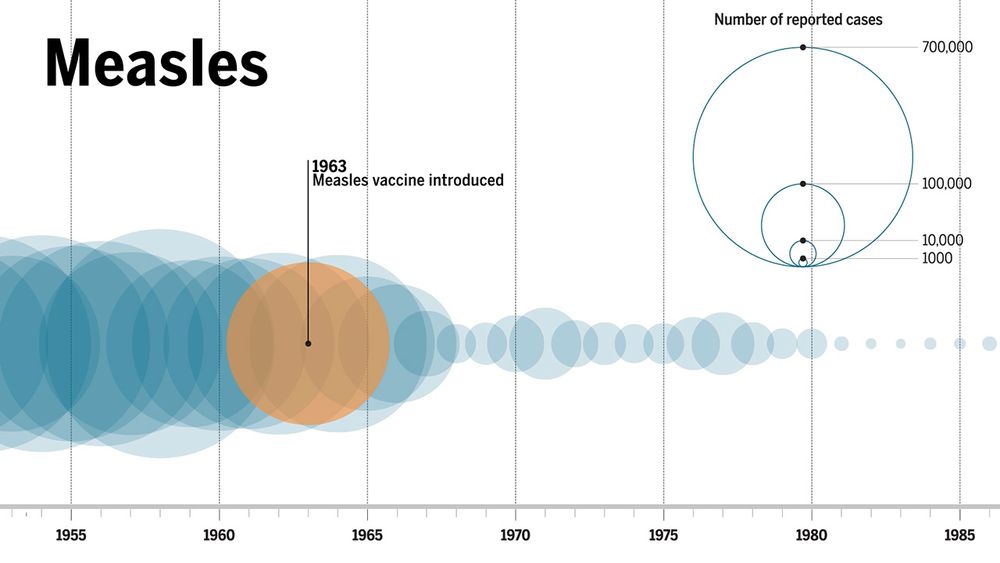
🧪 #IDsky
www.science.org/content/arti...
Reposted by Xiaoli Nan
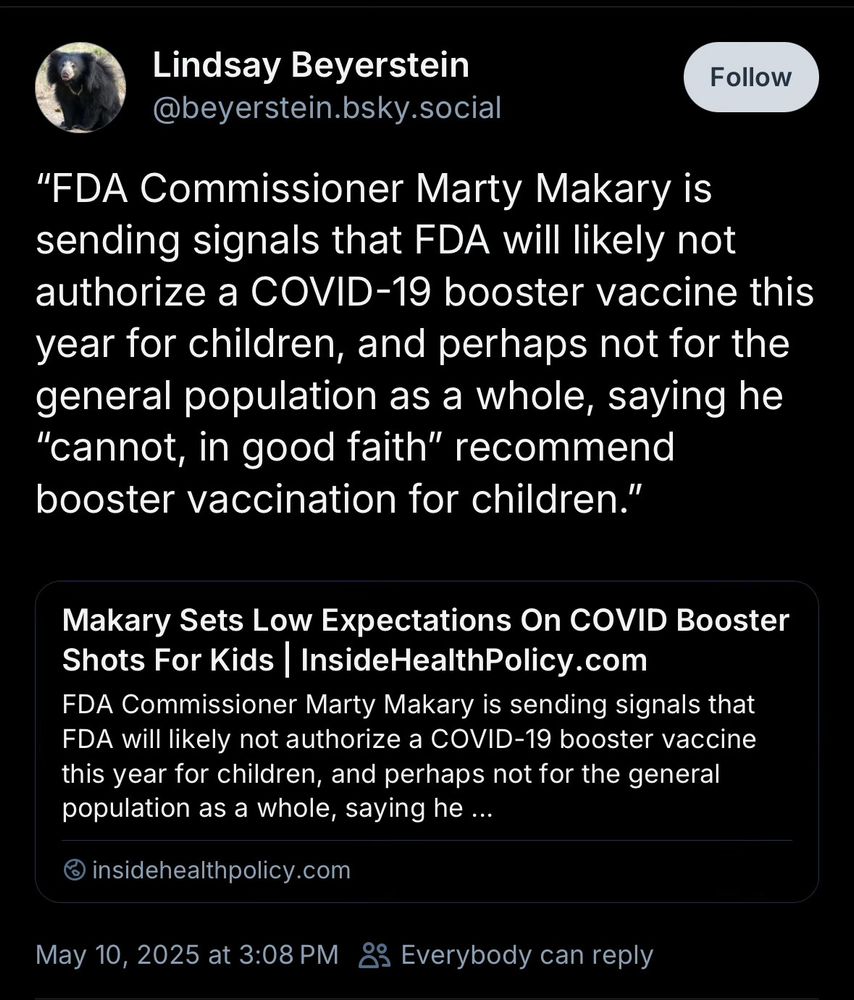
Reposted by Xiaoli Nan

www.nature.com/articles/s41... #ScienceSky #SciComm
Reposted by Xiaoli Nan
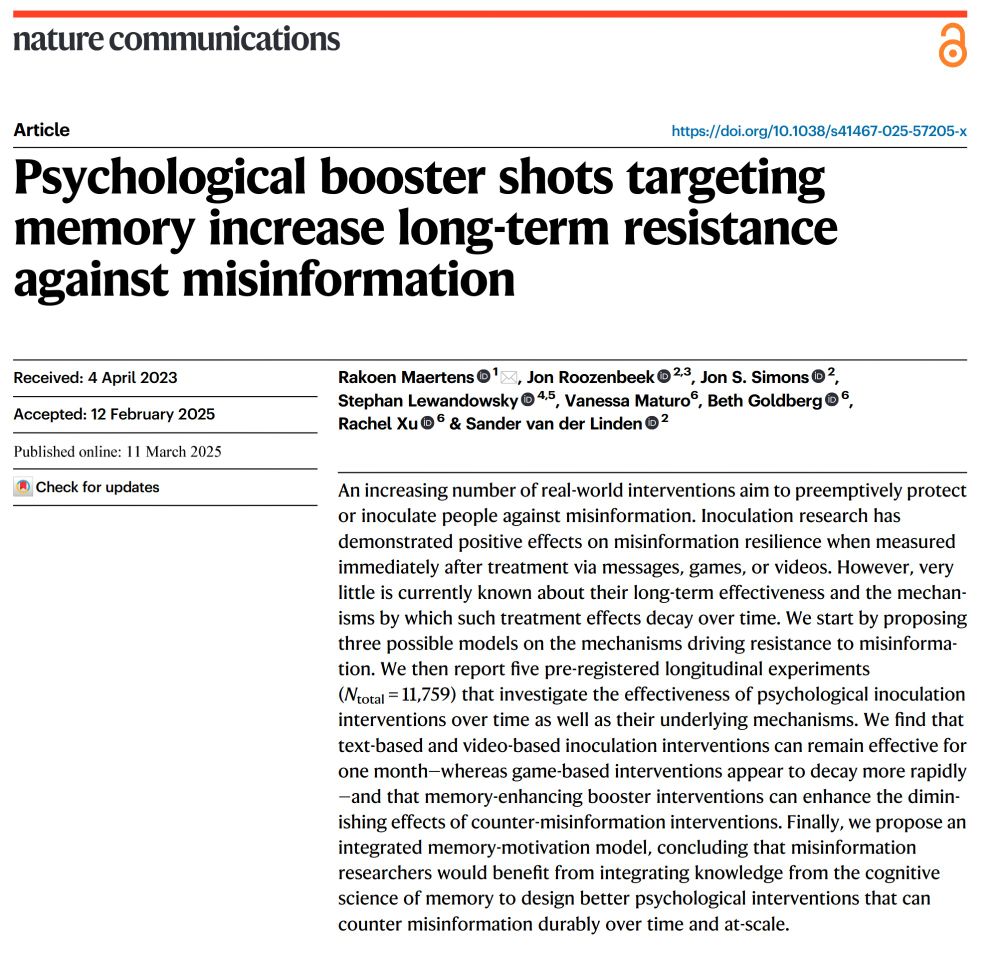
Psychological Booster Shots Targeting Memory Increase Long-Term Resistance Against Misinformation
doi.org/10.1038/s414...
Press Release
www.ox.ac.uk/news/2025-03...
Key Findings
* Inoculation works
* Effects dissipate
* Booster shots remedy this
(1/10)
Reposted by Xiaoli Nan

I can’t remain silent - and hope you won’t, either.
open.substack.com/pub/garymarc...
Reposted by Xiaoli Nan
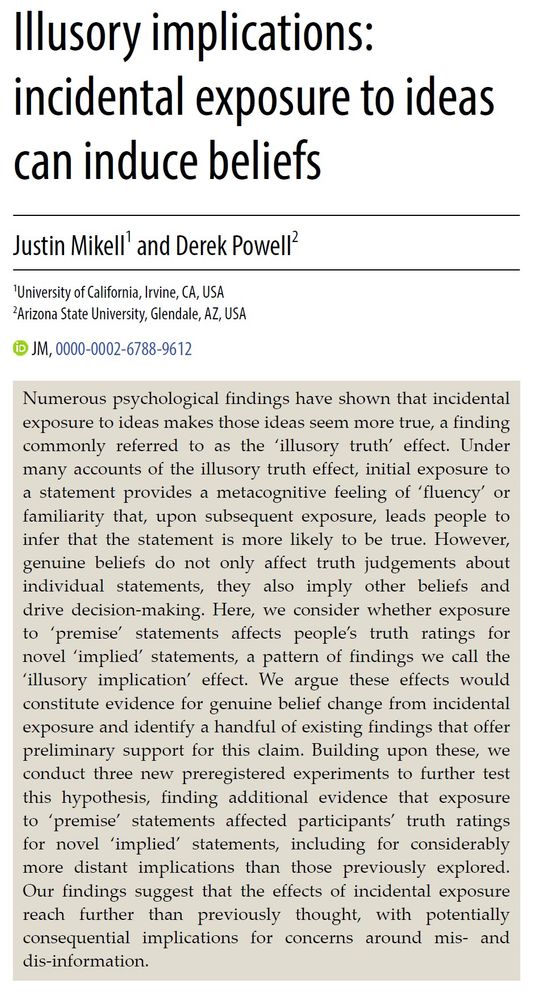
Reposted by Xiaoli Nan, John R. Kerr
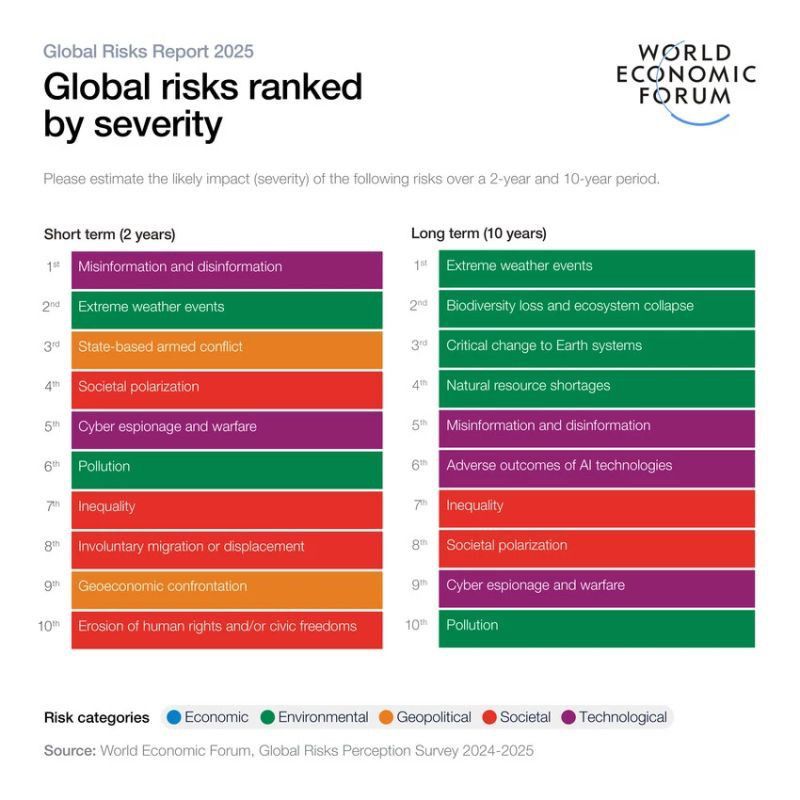
Reposted by Xiaoli Nan

substack.com/home/post/p-... #MisinfoResearch
Reposted by Xiaoli Nan

www.science.org/doi/10.1126/...
Reposted by Xiaoli Nan


www.thelancet.com/journals/lan...
Reposted by Xiaoli Nan, Philipp K. Masur


Reposted by Robert Böhm, Aleksandra Cichocka, Xiaoli Nan
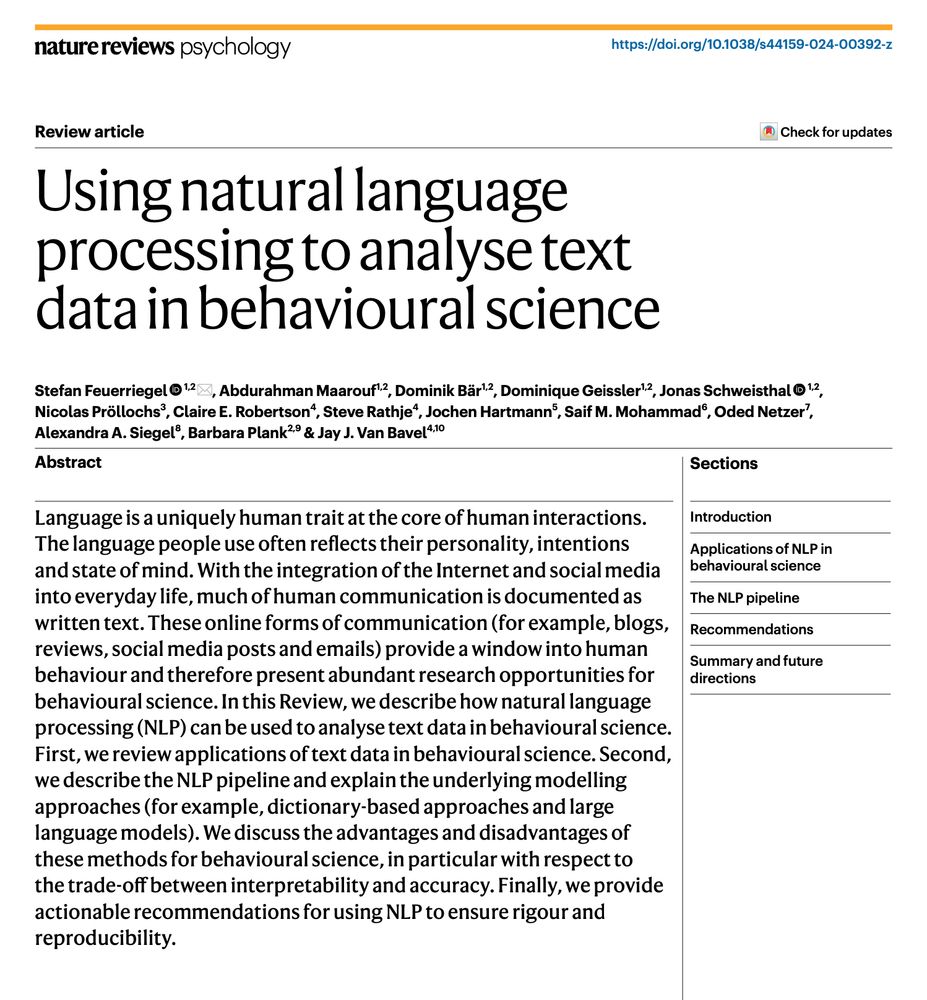
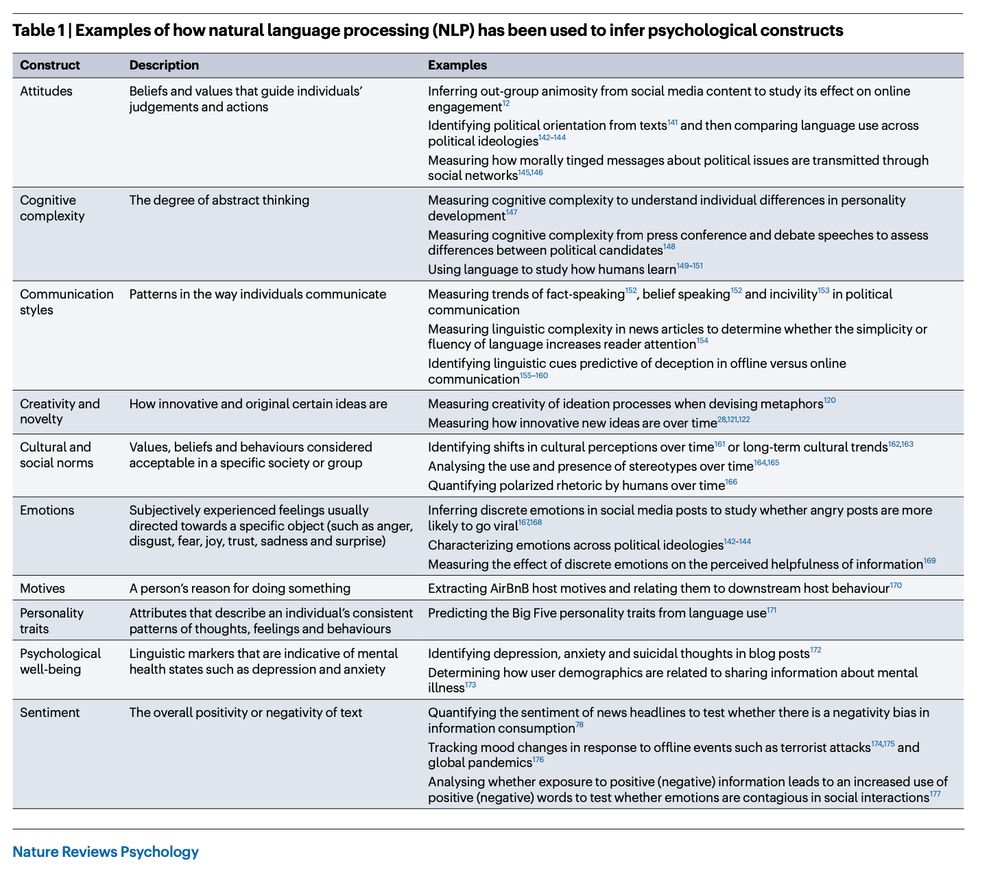
We provide user friendly recommendations for using NLP to ensure rigour and reproducibility
Here is a free link: www.nature.com/articles/s44...
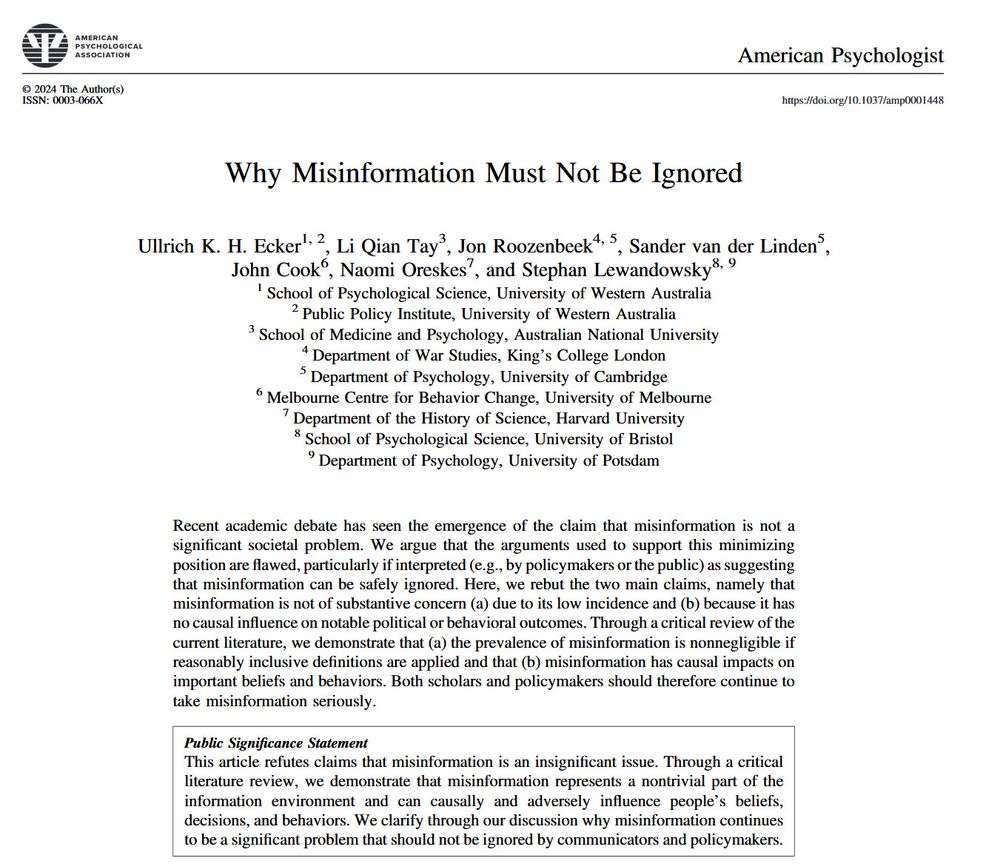
(1) The prevalence of misinformation in society is substantial when properly defined.
(2) Misinformation causally impacts attitudes and behaviors.
psycnet.apa.org/fulltext/202...
Reposted by Xiaoli Nan

Reposted by Joshua A. Tucker, Xiaoli Nan

Reposted by Xiaoli Nan

www.nature.com/articles/s41...
Reposted by Xiaoli Nan
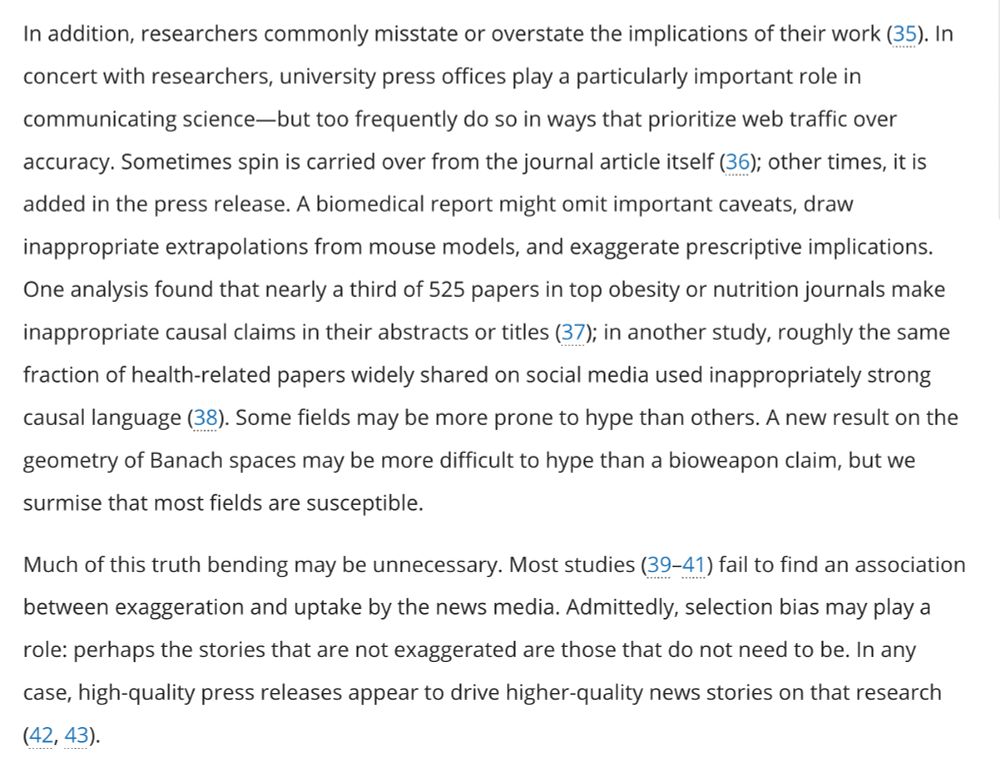
www.pnas.org/doi/10.1073/...
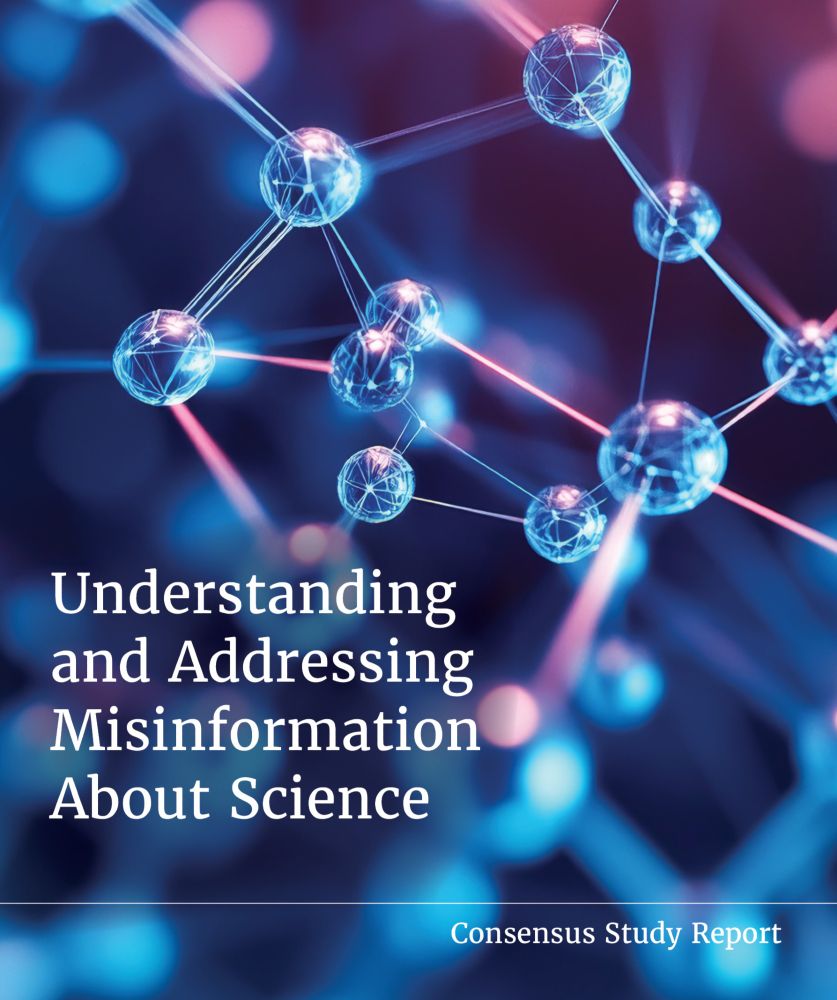
It was a privilege to serve as one of the 15 committee members from a wide range of scientific disciplines who put this report together. Quick 🧵1/
www.nationalacademies.org/our-work/und...
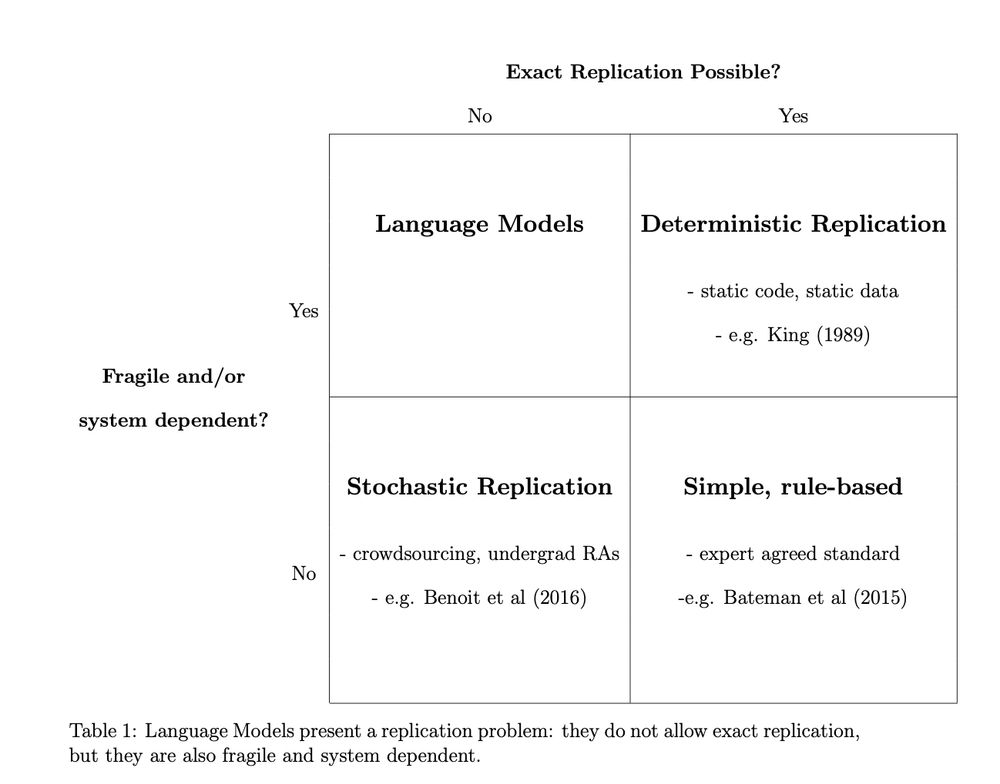
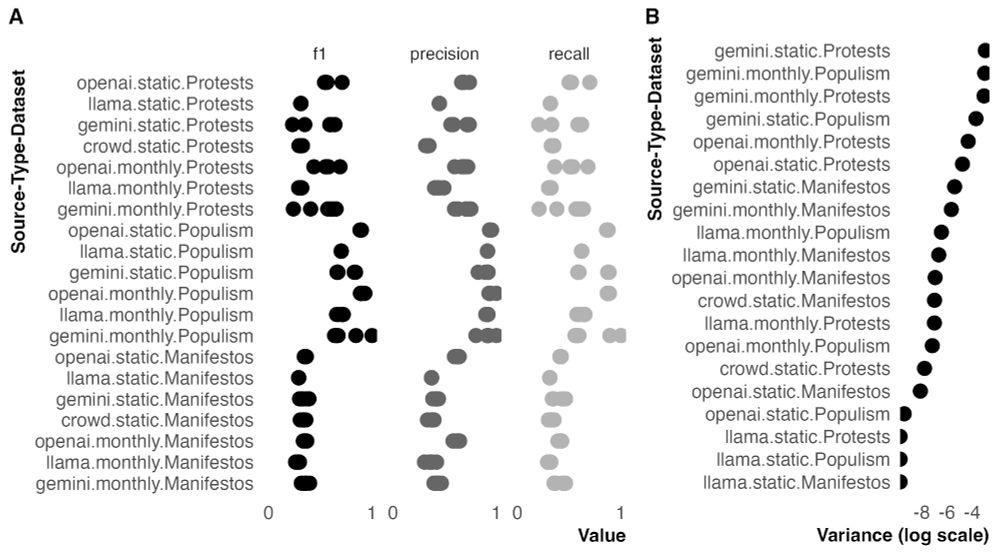
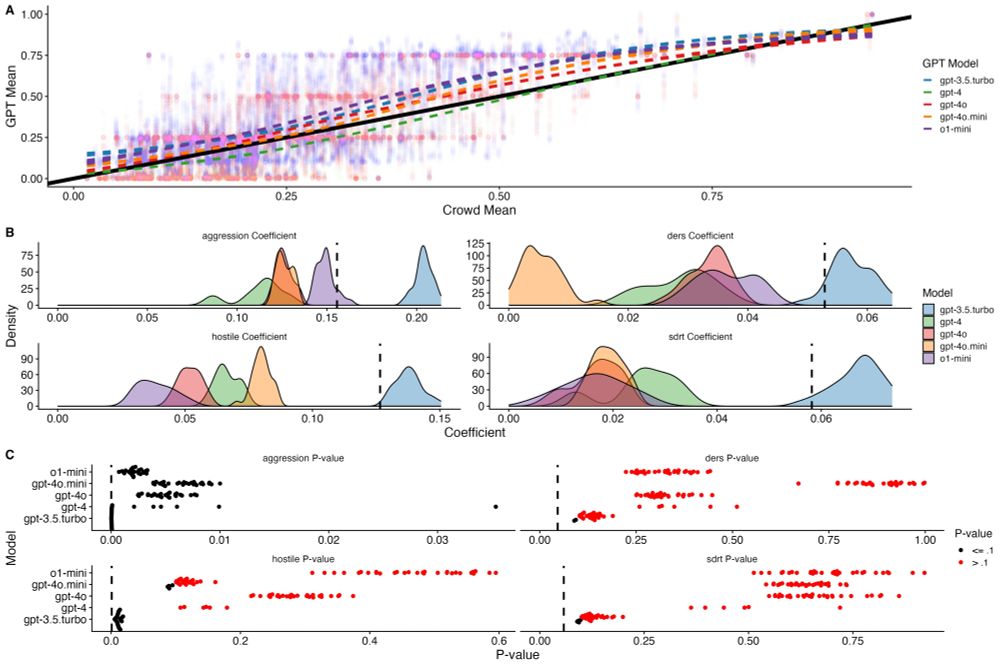
We show:
1. current applications of LMs in political science research *don't* meet basic standards of reproducibility...
Reposted by Xiaoli Nan

misinforeview.hks.harvard.edu/article/usin... #MisinfoResearch
Reposted by Aleksandra Cichocka, Xiaoli Nan



Conspiracy beliefs famously resist correction, ya?
WRONG: We show brief convos w GPT4 reduce conspiracy beliefs by ~20%!
-Lasts over 2mo
-Works on entrenched beliefs
-Tailored AI response rebuts specific evidence offered by believers
www.science.org/doi/10.1126/...
1/
[X->BSky repost]
Reposted by Xiaoli Nan
Reposted by Xiaoli Nan

•experienced political practitioners and laypeople perform barely better than chance at predicting which messages will be most persuasive
•practitioners’ predictions are not meaningfully better than laypeople’s: https://buff.ly/3OU7rrB

